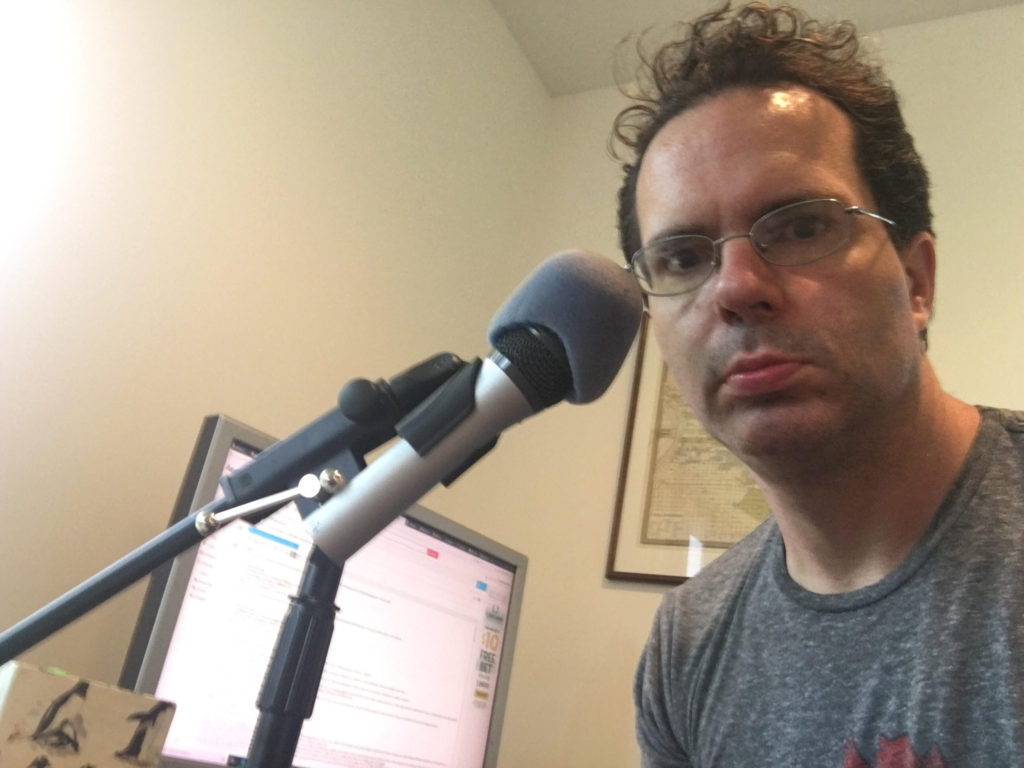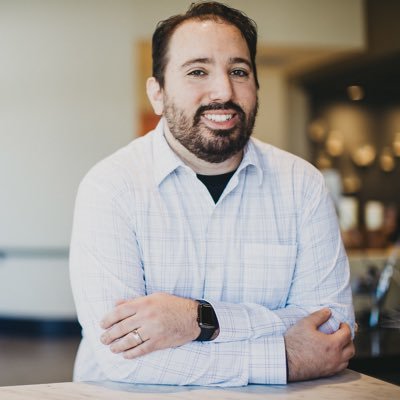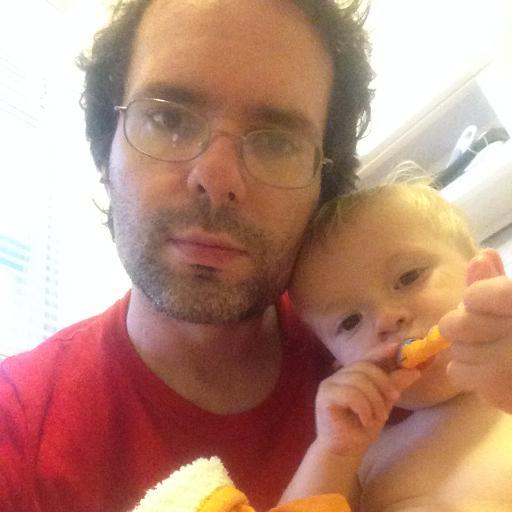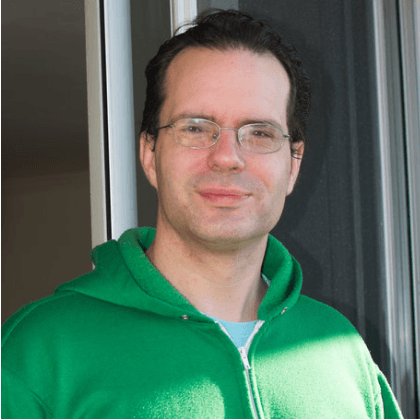This is the second part of the interview, in which we talk about Ben’s trading years, his transition back to chess teaching, about Perpetual Chess Podcast and his family.
The first part of the interview, in which we talk about his early years, his adulthood and time in college and how he got into poker, is available here.
Ben Johnson as a Chess Teacher/Educator
Q: At the end of it all, you decided to get back to your former love – Chess Teaching. During the years you were playing poker and trading, you didn’t do much of that, right?
A: I was not coaching or even very active in chess from 2003-2015, although many of my best friends were still from the chess world.
In the early poker years, I worked with a former student for free, and I played the occasional tournament, but didn’t study or take it seriously and my results in chess weren’t good. Throughout those years, though, I always fondly recalled my years teaching chess, and I always felt like I could be happy doing it for a living again if circumstances warranted it. (I was right about this, as I do enjoy teaching chess)
I didn’t return to teaching chess until 2015, first on a part-time basis while I still traded, then closer to full time in 2016 when I quit trading.
Q: From the outside, it seems that chess teaching is a big thing in the United States. So many schools, colleges and organizations…How many people make a living out of chess teaching? How difficult and lucrative it is?
A: Good questions! It is very hard to guess accurately, but it wouldn’t surprise me if there are 200-300 full-time chess teachers in the US and many more part-time. For most chess players the most challenging aspects of teaching are going to be classroom management/communication-related.
As for how lucrative, basically no one gets rich teaching chess, but scholastic teachers can make a pretty good hourly wage during the hours they are most in demand, which is primarily after school hours, nights and weekends. The problem can be that this schedule is not very conducive to having a family, because that’s when your wife and kids are home. So in summation, chess teaching is a great job for a young person without a family, but as you get older you have to be very deliberate in planning a professional life that is compatible with other life goals.
Q: As far as I understood, you focus on teaching groups of young kids. Can you describe how an average session looks like? How do you keep their attention without being too pushy? How do you keep the balance between being serious and being fun?
A: Most of my afterschool chess clubs are 75 minutes long. I typically teach something very basic for the first 20 minutes, ranging from how the rook moves to what a pin is. Then they do related puzzles for about 10 minutes, and then they play chess. It is very important to vary the activities, especially with younger kids.
You learn to teach through trial and error! When I was hired by Chess in the Schools I was a terrible teacher, probably 1000 strength. As for the balance between serious and fun, I think chess teachers should be fun. There are a few reasons:
- We are teaching a game
- The kids have been in school all day, so it’s a bit unfair to them to be a taskmaster after school too.
- It keeps them engaged
The challenge can be that if you make too many jokes or are too care-free the students can get a bit silly.
Q: What is the one thing you find the most enjoyable about working with kids?
A: They generally have contagious happiness, as they have not yet been beaten down by life. 😉
Ben Johnson as a Chess Podcaster

Q: Okay, let’s talk about the thing that made you famous – Perpetual Chess Podcast :D.
On your about page, you already hinted at how the idea of a chess podcast came to life. Can you wrap it up and/or elaborate a bit further for the readers?
What motivated me to start the podcast? There are several reasons.
- I was and am a huge podcast junkie, and couldn’t believe the lack of offerings about chess. (I have to give a shout out to Macauley Peterson, Lawrence Trent and Simon Williams of the Full English Breakfast though- at the time I dreamed up Perpetual Chess, their podcast had gone dormant, and they had a different format than the long form interview one that I envisioned for Perpetual Chess)
- This reason is a bit more personal, but at the time I started the podcast I did not feel very fulfilled professionally. I had just gotten back into teaching chess to kids in Pittsburgh PA after many years of playing poker, and then trading stocks. I enjoyed the teaching, but it can be lonely since you are in a different school every day and in Pittsburgh, I didn’t really have any work colleagues. Although my home family life was a reasonably happy one, my wife and I were sleep-deprived and spread a lot thinner financially than we had been before kids)
My feeling of unfulfillment also felt exacerbated by my having young kids at home. I felt like I was surrounded by kids every moment (with the notable exception of my wife), and although I am lucky to like kids, this was a stark difference from the prior 12 years spent primarily working alone in front of my computer and socializing with adults.
The idea of starting a chess interview podcast to me solved two problems at once- it gave me the chance to talk to adults (brilliant ones at that, and about a subject I love), and it was likely to expand my connections in the chess world and help me feel less isolated. Needless to say, I am very happy that I made this decision and forever grateful to my wife that she gave me the space to invest the time and money necessary to pursue this project.
Q: That is fascinating! It is not the first time I hear that a good idea was developed because someone wanted to solve his own problems.
But many people never go beyond the step of thinking of an idea. How long did it take you to start implementing it in real life? Did you have the equipment? Who made the website? Did you have a producer at the very beginning?
Can you tell us how the podcast actually came to life?
A: For about a year I had the idea for this podcast, and even kept a “notes” file on my phone where I brainstormed potential names and guests for the show. I also would frequently check iTunes to see if someone else had started a chess podcast. Part of me wanted someone else to do it, so that I wouldn’t have to think about it anymore!
I am not particularly tech savvy, so what kept me from doing it was not knowing how any of the back-end stuff like recording and uploading worked. That problem was solved, by chance, when I saw a tweet from a finance guy I follow on Twitter, Patrick O Shaughnessy. He was singing the praises of his podcast producer, Mathew Passy and recommending him for anyone thinking of starting a podcast. I reached out to Mathew and he helped me take it from there.
Q: And so it took off. I have listened to the very first episode with Greg Shahade the other day and I kinda got the feeling I was listening to two high-school friends who were surprised themselves that they are talking about chess and recording it (I don’t mean it in a bad way – I died from laughter).
Looking back, what do you think about the first steps? Did you have your doubts? Were you afraid no one would ever listen to it?
A: I was pretty confident that there was an audience for a chess podcast- because I wanted one myself. What I was more concerned with was that someone more qualified than me should be the one doing it! Listening to those early interviews makes me cringe, but I wasn’t going to learn to podcast without just doing it.
Q: But okay, you have come very far since. 131 episodes later you have spoken to a number of world-class GMs, chess content creators and businessman. You have also gained a decent number of Patreon supporters.
Did you even think at the beginning podcasting might become more than a hobby? A profession? A business?
I would be lying if I did not admit that I also saw creating a chess podcast as a business opportunity. As a big podcast fan, I had seen how creating a podcast had changed the life of Marc Maron in the comedy world, and of Nate Duncan in the NBA world, just to name two of my favorite podcasters.
Chess obviously is not as popular as show business or the NBA, so I didn’t expect success on that scale, but I figured that at minimum, Perpetual Chess could be a decent, gratifying side-hustle that augmented my teaching, and thanks primarily to the Perpetual Chess Patreon supporters, that is what it has grown to be as of now.
Q: How many people are working on the podcast? Have you reached the point where the income is higher than the expenses?
A: It is just two people- me and my producer. Mathew Passy. Without Mathew, the podcast would not be possible. He does the editing, plus the troubleshooting on any tech issues I encounter. I am happy to report that thanks to the Patreon supporters of Perpetual Chess it is reasonably profitable. As I have said on the podcast, it undoubtedly has the lowest hourly rate of all my work (chess and poker both), but I enjoy doing it, and if the revenue continues to grow it should be sustainable for a while.

Q: You always seem excellently prepared for every interview. How much time does it take you to do so? How much does it take you to promote it on iTunes and social media?
Can you take us through the process of recording an episode? From the preparations to the very interview and the (post) production?
A: Thanks! I take pride in preparing as much as I can for every interview because it is the aspect of producing a good show that I feel like I have the most control over. I know that there are plenty of stronger chess players than me and lots of people know more chess history, so being fully prepared for and focused during the interview is the least I can do.
As for how the podcast gets made. First I try to chase down a guest. 😉 Sometimes this can take one email, sometimes I feel like everyone I ask is ignoring me. Also sometimes someone is initially responsive, but then disappears. This is frustrating because it makes it hard to sequence guests and not a miss a show or overbook with the limited amount of time for interviews that I have. Scheduling guests is my least favorite part of creating Perpetual Chess.
Once a guest is scheduled, I alert my Patreon supporters in case they want to submit questions, then begin research. If its an author I try to read at least one book of theirs, usually the most recent. If not, I scour the internet for other interviews or check out whatever project they are doing. I probably average about 5 hours of prep per guest, but it depends a lot on who it is and how much they have written. The good news is that it often doesn’t feel like work, because I am reading about chess and learning new things. Recording the interviews is my absolute favorite part of doing the podcast, and makes it all worth it. When I am talking to the likes of Gata Kamsky or Judit Polgar and they share a story or tip that I know my listeners will enjoy I really feel like I should pinch myself at times.
Once the interview is recorded (on Skype). I send it off to my editor/producer with any edits and he makes the edits, adjust sound levels if necessary and posts it be released on my hosting page when ready. Once it is ready for upload, I relisten to the interview and post show notes and links. This adds another 60-90 minutes to the amount of time it takes, but I do think it greatly improves the product.
Then when it is released, on Tuesdays, it takes about an hour to do the release stuff. I tweet about it, which takes annoyingly long to compose due to Twitter’s character limits. There is also posting it on the webpage, sharing to the email list, via MailChimp, and sharing in the Facebook group. This stuff takes about an hour in total, but is relatively mindless.
Q: Do you have some episodes you are particularly proud or fond of?
A: So many that it really is hard to list. Not because of anything that I did, but just because chess has so many great personalities with awesome stories to tell. I have noticed that experienced chess authors are amongst my favorite guests. This makes me think of guests like GMs Genna Sosonko and Jacob Aagaard, and IMs John Watson and John Donaldson.
I also felt privileged to get to interview GM Gata Kamsky, as he has such an incredible career and interesting life, and he doesn’t seem to do a lot of long-form interviews.
Q: Do you have any future plans regarding the podcast? Have you defined a specific goal, or are you simply “going with the flow” and waiting to see where it takes you?
A: Definitely “going with the flow,” It is really hard for me to keep putting out an episode per week, so I never seem to find the time to think more big picture. If I had more free time I would focus a lot more on the “macro” aspect of the show, and could think more about stuff like soliciting sponsors, updating the webpage, selling merchandise, making additional content, etc., but as it is, I feel like I just barely get an episode out each week. So I fall back on the content creator’s mantra that if I put out a quality product everything else will take care of itself (someday.)
Q: Apart from Patreon, how else can people support your work?
A: Spreading the word about the podcast is always helpful.
Ben Johnson Off The Board
Q: Okay, last but not least, I would like to find out something about Ben as a person. 1
I know you are married with two kids. But can you tell us how and when did you meet your wife?
A: My wife and I met through an online dating site in 2008. At the time I was an online poker pro, living in Brooklyn NY. Poker, like chess, has been a predominantly male-dominated field, so it was hard to meet women at times. For any lonely chess players out there, I strongly recommend overcoming your inhibitions and trying online dating.
Q: Did you have a magical pick-up line? Or did you stick to the good old „Hi, I’m Ben?“ 😀
A: Haha. This could be the subject of its own podcast, but let’s say I was better at writing friendly somewhat humorous emails to women I’d never met then I was at approaching them. I suspect this would be true of many chess players.
Q: Since you have a successful track record and since many chess players are struggling in that domain, what would your piece of advice to them be? 😀
A: Hmm, depends on whether you are trying to be a teacher, a content creator, or both. But I think it is generally good advice to pick one thing or one small aspect of a field and try to do it really well and really consistently.
Q: How old are your children? What are their names?
A: They are 6 and 3, a boy and a girl.
Q: Have you started teaching them chess? There is strong evidence one of them is quite incompetent in that field 😀
A: Ha! I teach the chess club at my 6 yr old’s school. So far he prefers “giveaway chess“ aka “suicide chess“ to regular chess, but he does seem to enjoy the social aspect of the chess club.

Q: How do you balance your professional and family obligations? How does an average day in the Johnson family look like?
A: Oh man, it is so hectic. It is hard to balance especially because I am a freelancer. My wife has a demanding full-time job so a lot of the parenting grunt work falls to me, such as getting the kids ready for school, cooking dinner, taking them to music classes, etc.
Q: If someone asked you about a secret to being a good parent, what would you say? What would your advice be to other future (and current) parents?
A: My kids will be able to tell you in 20 years whether I am a good person to answer this, but I can give basically the same advice I did with regard to teaching and content creation- Don’t halfass it!
Q: Apart from chess, poker, podcasting, stocks, TV shows and family, do you do anything else in your free time? 2Do you have any other hobbies?
A: I think you covered all of my interests except for sports. I am a big NBA and Major League Baseball fan. As a native Philadelphia, the 76ers and Phillies are my teams, but I follow the leagues as a whole as well.
Q: I am going to make a random guess here, but I somehow imagine you read a lot. Can you give us a list of your five favorites (non-chess) books of all-time? Or five good books you read recently? 3
A: I love reading and was reading 1-2 books per week until my kids were born. Arg!
In my teens and 20s, I read a good amount of fiction- I liked Murakami and Milan Kundera among many others. These days I read mostly non-fiction if/when I have time.
Seth Godin is half motivational writer half marketing wizard, and I love his books and his blog. Recently I have been loving the writing of Scott Galloway who I guess you would call a business writer. I just started reading The Algebra of Happiness and it strikes me as a great book for a 20 something trying to find him or herself. Scott Galloway also does a free weekly column called No Mercy No Malice that everyone should read.
Both Seth Godin and Scott Galloway have podcasts too, because of the way things work these days.
Also, read everything by Michael Lewis.
Lastly, if you haven’t read Born Standing Up by Steve Martin, an American actor and comedian, you should!
Q: Do you have any intentions of getting back to serious tournament chess at some point?
A: That is a very good question. I do miss competing, but as a competitive person, it would be hard for me to enjoy without feeling like I was in decent playing shape. And in order for that to happen, I would need to spend 5-10 hours a week studying for a solid 3 months, at minimum. That is not happening imminently, unfortunately. But I definitely want to get back in the ring if my professional and family responsibilities ever settle down. Sadly, that may not be until my kids are in college, but chess is always there for you!
Q: Do you have a life motto? If yes, which one is it?
A: As my friend, IM-elect Donny Ariel famously said, “ life is about the quality of your relationships.“
Q: If you could invite three persons to dinner, whom would you invite?
A: Wow, should I be asking someone this on the podcast? Let’s go with Grischuk, Anand and Barack Obama.
Q: Last, but not least, is there a message you’d like to send the readers? Especially to those who don’t know what to do with their life? Who are struggling to find their passion?
A: OK, its gonna be impossible for this not to sound like a cliche. When you are young, without family you should be trying stuff. Quit your job, start a blog, start a YouTube channel- take chances. If you are not sure what your “passion“ is, think back to what interested you as a child. And read a lot!
Q: Phew, we have finally made it to the end. Thank you so much, Ben, on your time and on your effort – the depth and the length of your answers were quite amazing!
It was a real pleasure talking to you and telling your interesting and fascinating story to the broader public.
We wish you all the best in the future and hope for further growth of the Perpetual Chess Podcast audience 4!
A: Thanks Vjeko! I feel like anyone who read this much about me should win a prize! Thanks to anyone who read this, and good luck with your chess writing!
Links where you can find more about Ben
Perpetual Chess Podcast Website
Perpetual Chess Podcast Patreon
Perpetual Chess Podcast on Apple Tunes
Perpetual Chess Podcast Facebook Group
This is the second part of the interview, in which we talk about Ben’s trading years, his transition back to chess teaching, about Perpetual Chess Podcast and his family.
The first part of the interview, in which we talk about his early years, his adulthood and time in college and how he got into poker, is available here.

